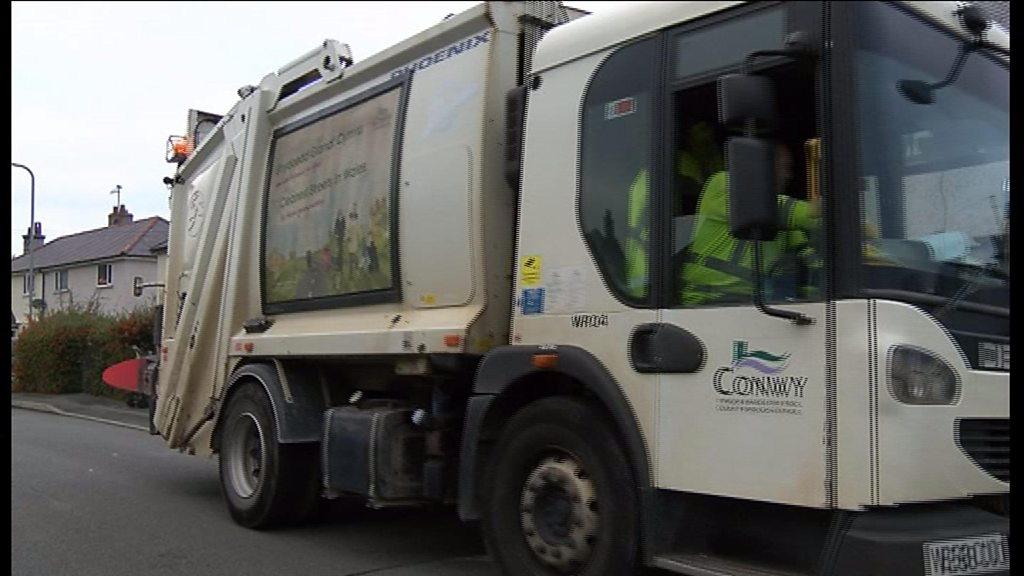Conwy council: Monthly bin collections 'boost recycling'
- Published
Monthly bin collections have split opinion in Conwy
A move to monthly bin collections has led to more recycled waste and less going to landfill, the first council in England and Wales to do so has claimed.
Conwy council controversially rolled out monthly black bag collections in September after it was piloted in 2016.
The council recycled 11% more and sent 12% less waste to landfill in the final three months of 2018 than the same period of 2017, figures show.
But resident Aloma Wheway said fly-tipping had increased since the change.
And Ms Wheway added the associated "disgusting stench" along with rat, seagull and fly infestations would get worse during the summer.
Domestic waste recycled jumped from 3,160 tonnes between October and December 2017, to 3,522 tonnes in the same period of 2018 - the three months following the introduction of monthly collections.
Conversely, general waste sent to landfill fell from 3,715 tonnes to 3,258 tonnes over the same period.
Conwy council paid tribute to "incredibly motivated" residents for recycling "more than ever before".
"The response from the community has been excellent," said councillor Donald Milne, the member with responsibility for environment.
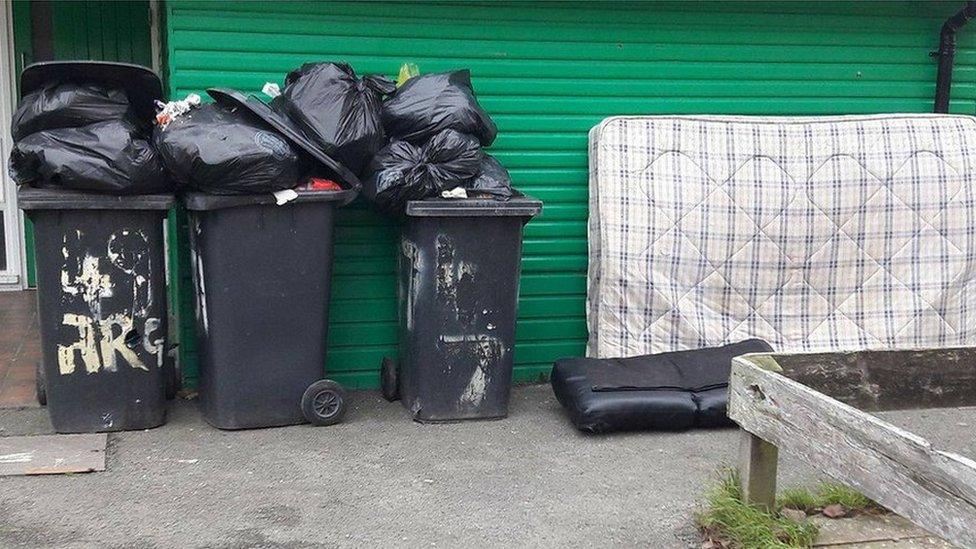
Residents who were part of a pilot had claimed their bins were often overflowing
"Conwy residents have really got behind the scheme. It's good to know that each household's efforts have made a difference."
Mr Milne said the additional food waste, which goes through anaerobic digestion to produce energy and fertiliser, has generated enough energy to boil a kettle in every home in Conwy 10 times.
Families struggling
The council said residents have been recycling more to make sure there is enough space in their rubbish bins to hold a month's worth of general waste.
But Aloma Wheway, from Betws yn Rhos, said the policy has had the unintended consequence of increasing fly-tipping.
"We haven't got much of a choice but you see more waste - black bags full of things - dumped all over the place," she said.
"Some people find it okay but families are really struggling because they have more waste."
The mother-of-two, who said she embraces recycling, claimed many residents were burning their own waste to avoid the smell.
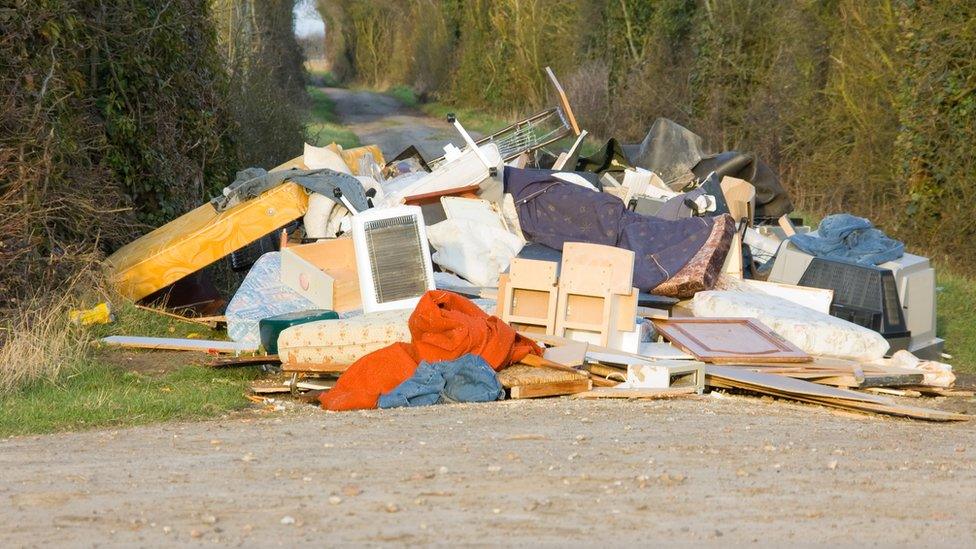
Monthly bin collections have led to an increase in fly-tipping, according to a Conwy resident
"We were part of the pilot so we have had monthly collections during the summer, and the stench is disgusting," Ms Wheway explained.
"You have all this stuff like dog poo and bathroom bin waste and you don't want that in your bin for a month."
Ms Wheway called for the return of fortnightly collections for family households, and for the recycling system to be simplified.
Responding to Ms Wheway's criticisms, Conwy council accepted fly-tipping had increased but denied it was due to monthly collections.
The council pointed to figures showing general waste accounted for 25% of the illegally dumped waste in November 2018 - up from 22% in 2017.
If residents' bins smell, it is because they are putting the wrong waste in them, a council spokeswoman added.
The Welsh Government said it was up to each local authority to decide how it would meet its target to recycle 70% of waste by 2024/25.
And the situation is unique to each local authority area, the Welsh Local Government Association added.

How can you reduce your waste?
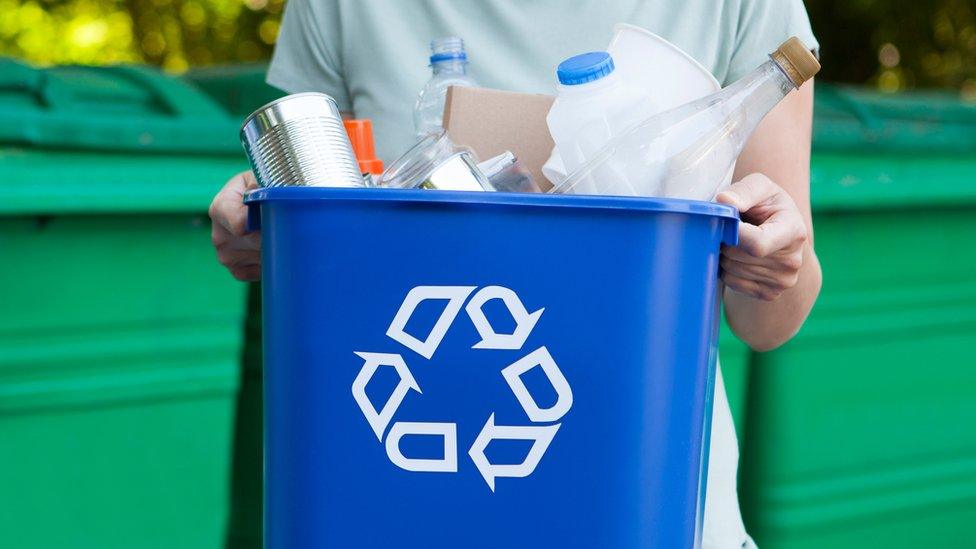
The best tip to reduce waste is not to produce it in the first place. Plan what you buy and buy what you plan
Get to grips with what your local council recycles - not all recycle the same things
Is junk mail a problem for you? De-register yourself from online marketing lists. If you do get junk mail through the door remember to recycle it
Think before you throw away an unwanted electrical item. Ask if your friend or family if they want it, sell it or donate to charity
Buy a compost bin and make your own compost to enrich your garden and reduce the amount of garden and kitchen waste your throw away
Source: Recycle for Wales, external

- Published18 December 2018
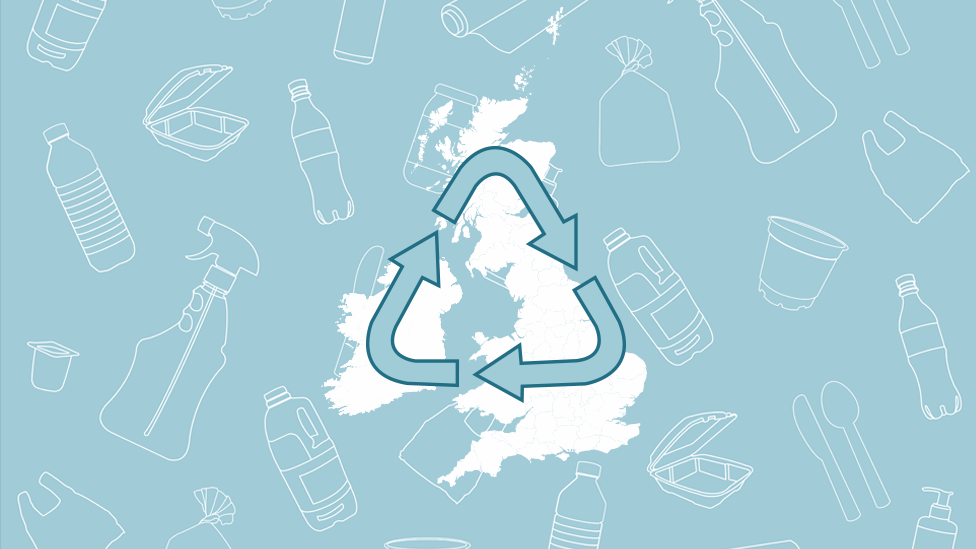
- Published5 October 2018

- Published26 September 2018
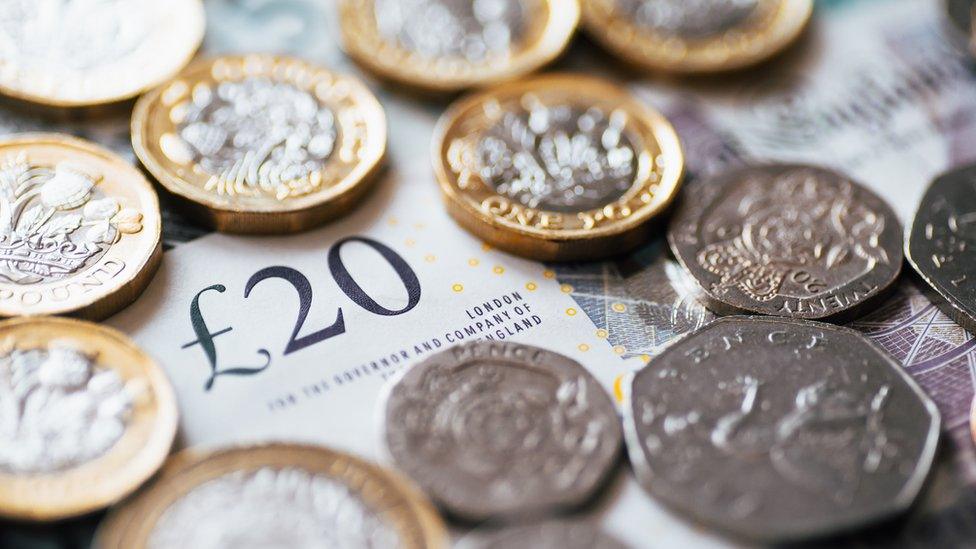
- Published24 September 2018

- Published24 September 2018
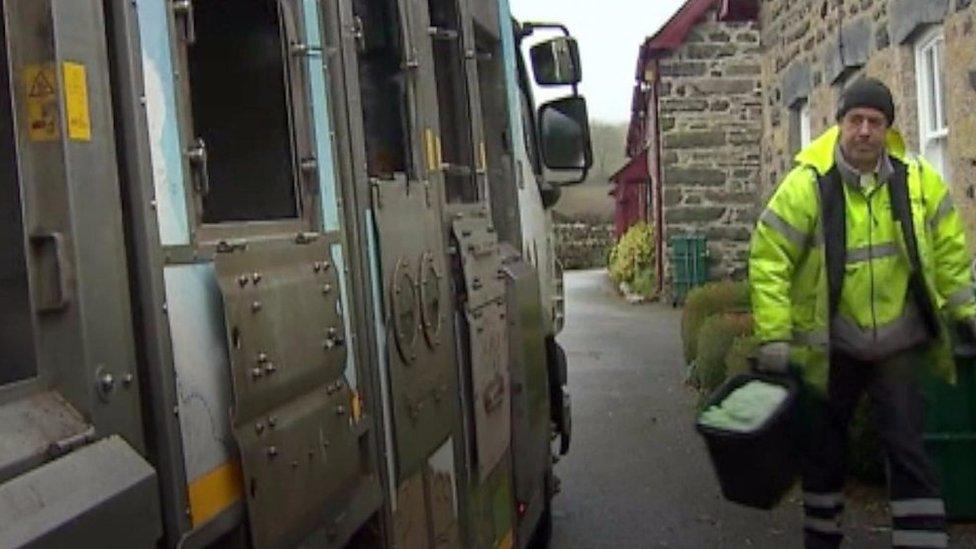
- Published20 November 2017
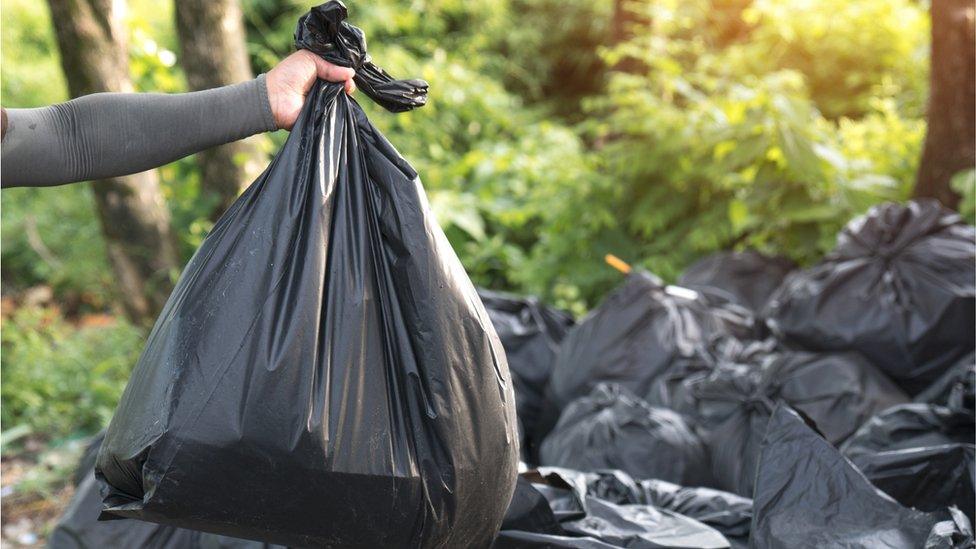
- Published24 August 2017
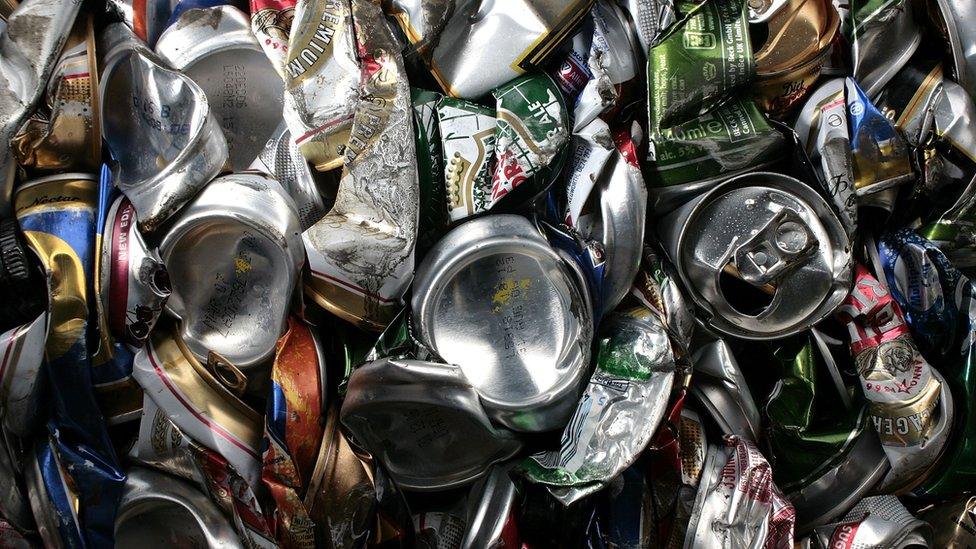
- Published16 March 2017

- Published19 September 2016
